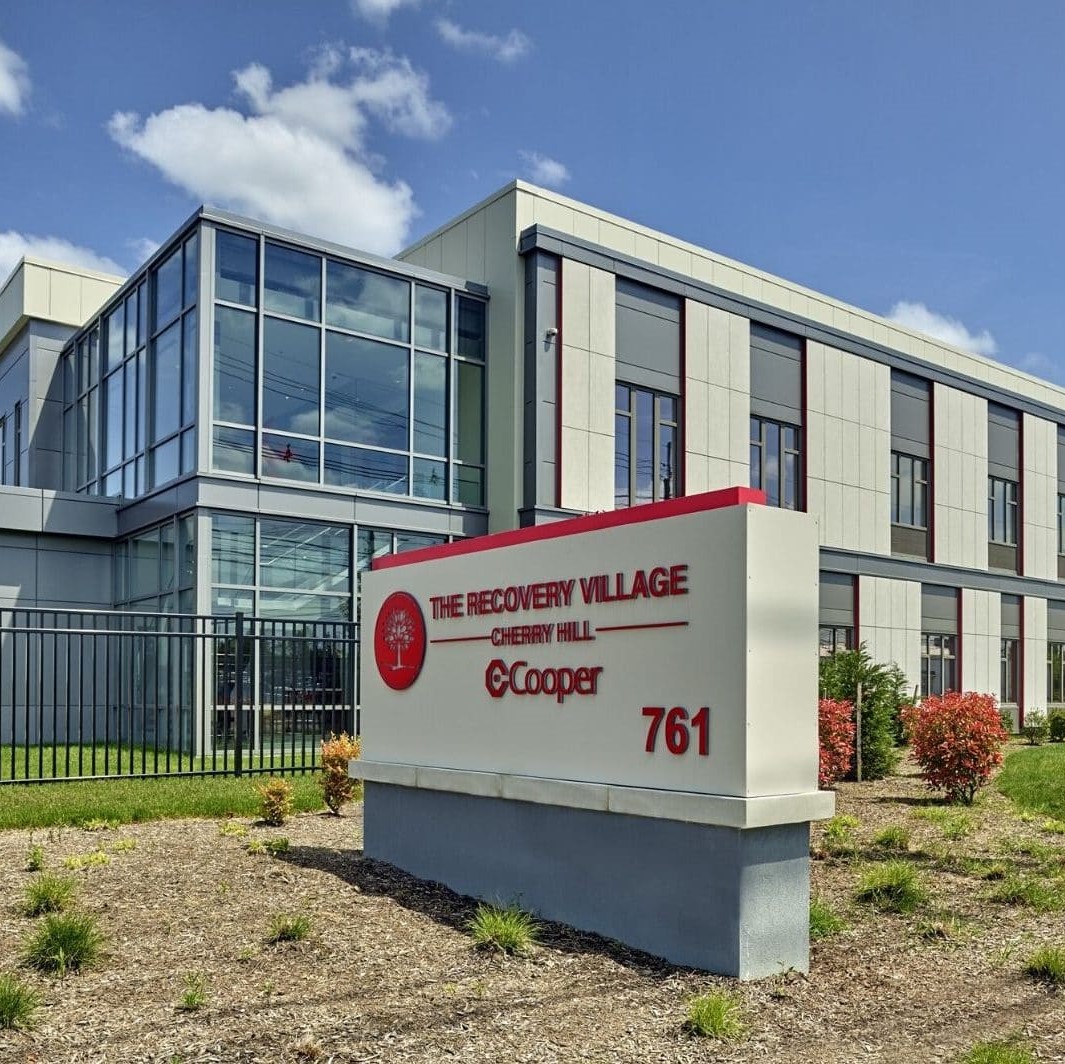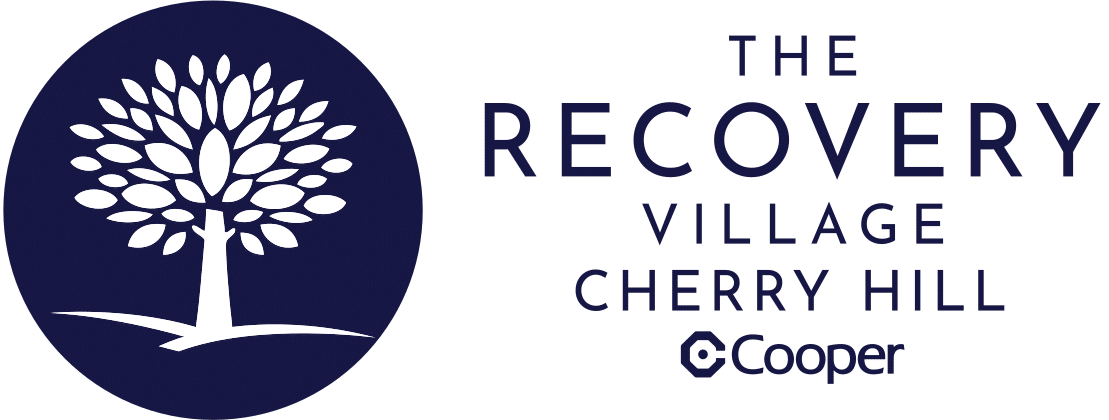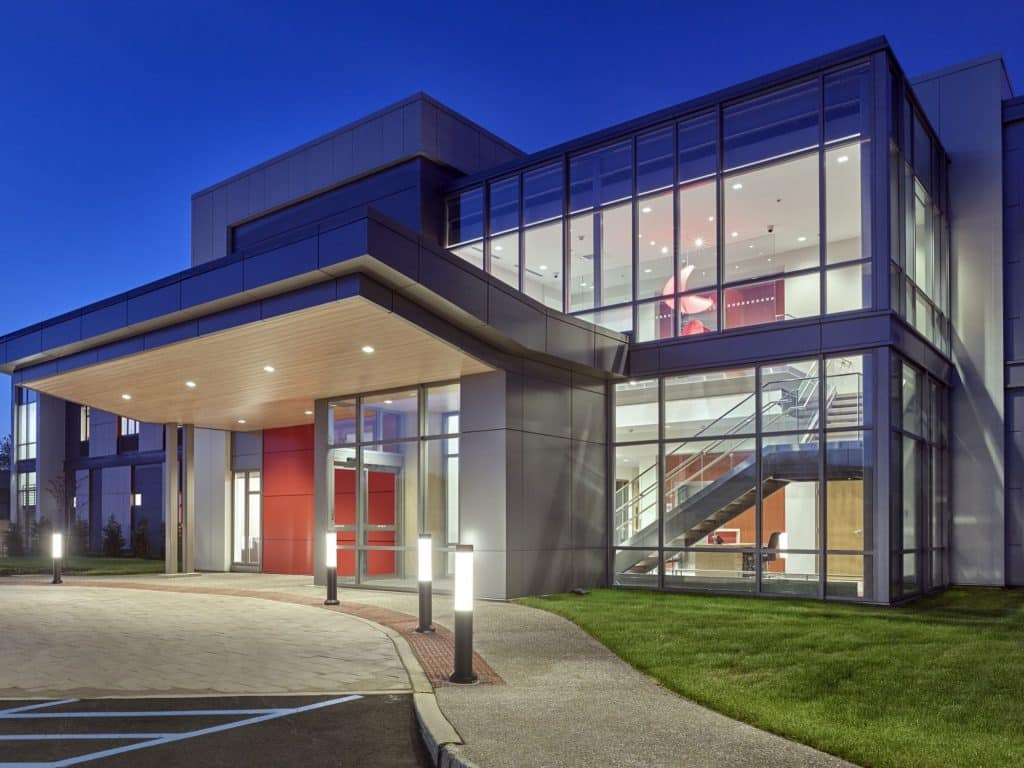
We have beds available TODAY! Call now to discuss same-day or next-day admission.
QUALITY CARE YOU DESERVE
Recovery From Addiction at The Recovery Village Cherry Hill at Cooper
Everyone deserves quality, compassionate care. Since 2013, we’ve helped over 50,000 people reclaim their lives through personalized, evidence-based addiction treatment led by caring experts.

HELPFUL ADDICTION TREATMENT RESOURCES FOR PROSPECTIVE PATIENTS

Insurance
Instantly check to see if we are in-network with your insurance by filling out our confidential insurance verification form.

Admissions
Our admissions team is available 24/7 to help you begin your recovery journey. Learn more about our admissions process.

Our Facility
Our facility offers everything you need to heal body and mind during recovery — all in a peaceful atmosphere.
We are in-network with most major insurance providers.
Most insurance companies will cover some or all of the cost of professional addiction treatment. Depending on your plan, treatment could be free. Use our confidential tool to see if we are in-network with your provider.
TREATMENT PROGRAMS
Our Drug Addiction & Alcoholism Treatment Programs in South Jersey
Our evidence-based programs support you in building a new, substance-free life by helping you mentally, physically and emotionally through your entire treatment plan.

Medical Detox
Our 24/7 medical team treats withdrawal symptoms as they happen to make medical detox as safe and comfortable as possible.

Inpatient Rehab
Living at the facility and receiving intensive addiction treatment helps you focus on your recovery and find the necessary tools to stay sober.

Outpatient Rehab
Patients in outpatient rehab can keep working, going to school or maintaining their homes because they receive their scheduled appointments online.

Co-Occurring Disorders
Simultaneously treating substance use and mental health symptoms can help manage recovery better and reduce the risk of relapse.

Medication-Assisted Treatment
The use of medications during withdrawal can ease withdrawal symptoms, reduce cravings or discourage substance use.

Teletherapy
Online teletherapy through our Nobu mental wellness app provides clients with life-changing treatment at home.

Real Alumni, Real Stories.
Hear from our alumni who have successfully completed our program.
South Jersey Communities We Serve
Ambler
Audubon
Bellmawr
Bensalem
Brick Township
Bristol
Burlington
Camden
Chester
Cinnaminson
Collingswood
Deptford
Glassboro
Gloucester City
Haddon Township
Haddonfield
Jersey City
King of Prussia
Lansdale
Lawnside
Levittown
Maple Shade
Marlton
Medford
Moorestown
Mount Laurel
New Jersey
New York State
Newark
Newtown
Norristown
Pennsauken
Pennsylvania
Philadelphia
Phoenixville
Plymouth Meeting
Sicklerville
Springfield
Trenton
Upper Darby
Vineland
Voorhees
Washington Township
West Chester
Willingboro
Wilmington
Woodbury
Yardley
Your Recovery Is Our Mission
If you struggle with drugs or alcohol, you’re not alone. Read our reviews and discover why The Recovery Village Cherry Hill at Cooper could be right for your recovery.
Let’s Discuss Your Recovery
Our Recovery Advocates are here 24/7 to answer questions about treatment for you or your loved one.
Fill out the form below to have a Recovery Advocate reach out to you.

 Insurance
Insurance About Us
About Us Our Facility
Our Facility Admissions
Admissions Programs
Programs Medical Detox
Medical Detox Inpatient Rehab
Inpatient Rehab Aftercare & Recovery
Aftercare & Recovery